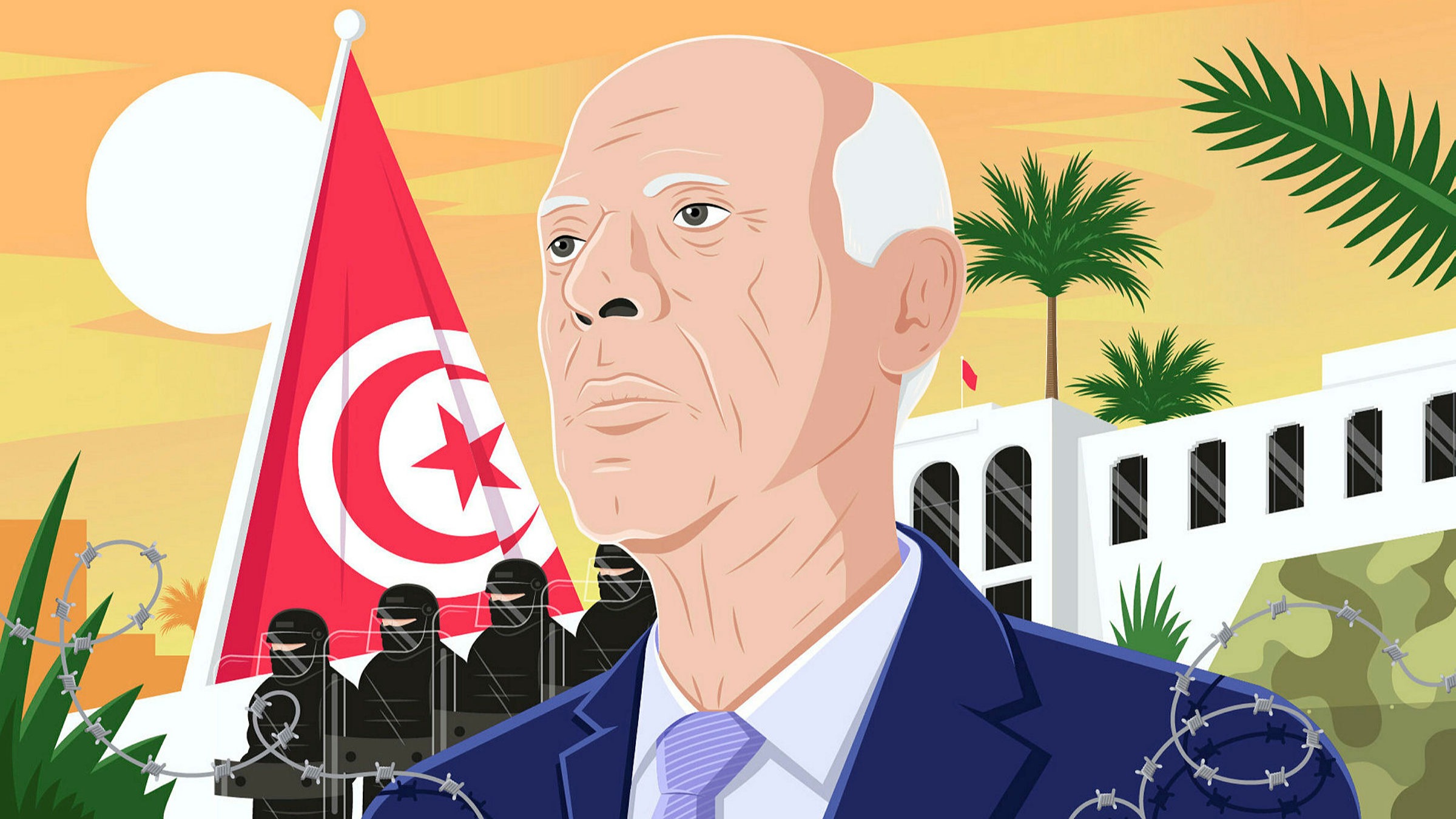
Tunisian President Kais Saied has intensified his confrontation with the country’s most powerful labor organization,the Tunisian General Labor Union (UGTT),in a move that analysts warn could further erode Tunisia’s democratic institutions and deepen its political crisis.
The UGTT,a Nobel Peace Prize laureate for its role in Tunisia’s post-revolution democratic transition,has called for a mass protest in downtown Tunis to “defend the union and its values” following a series of attacks and threats from Saied and his supporters.
The union accuses the president of inciting demonstrators to storm its headquarters after a nationwide transport strike paralyzed the country for three days.
In a televised address,Saied dismissed the union’s claims,stating that the demonstrators had no violent intent and that “files must be opened” to investigate alleged corruption. He warned that “no one will be immune from the law,” signaling a possible crackdown on union leadership
Since Saied’s power grab- widely described as a coup on July 25,2021- Tunisia has witnessed a steady dismantling of its democratic institutions. Saied suspended parliament,dismissed the government,and later pushed through a new constitution in a low-turnout referendum that granted him near-total control over the executive and judiciary
The new political framework has transformed Tunisia’s semi-parliamentary system into a hyper-presidential regime. Parliament now functions largely as a rubber-stamp body,and the judiciary has been subordinated to presidential authority.
Decree 54,passed in 2022,criminalizes dissent under vague charges such as “spreading false news” and has been used to imprison journalists,bloggers,opposition politicians,and unionists
In the 2024 presidential election,Saied secured a second term amid record-low turnout and the exclusion or imprisonment of major opposition figures. Critics,including the Workers’ Party,have labeled the vote a “charade” and accused Saied of consolidating a “fascist,individualistic ruling system” hostile to civil liberties.
The crackdown on dissent has intensified. In April 2025,a Tunis court sentenced 40 individuals – including lawyers,politicians,and activists – to prison terms of up to 66 years on charges of “conspiracy against state security” and “attempting to change the nature of the state”
Among those targeted were prominent figures from Tunisia’s post-2011 democratic era,including former President Moncef Marzouki and Ennahda party leader Rached Ghannouchi.
Human Rights Watch and other organizations have condemned these arrests as politically motivated and emblematic of Tunisia’s descent into authoritarianism. Saied has also assumed control over public prosecution,undermining judicial independence and the presumption of innocence
Meanwhile,Tunisia’s economic outlook remains bleak. The World Bank projects GDP growth of just 1.8% in 2025,constrained by high public debt,inflation,and weak private sector performance
Inflation,which hit 7.8% in 2024,continues to erode purchasing power,especially among lower-income households. Youth unemployment stands at 16%,and public services are deteriorating,with frequent water and electricity cuts
Despite structural reforms and a skilled workforce,Tunisia’s economy is hampered by excessive state borrowing and a vast informal sector that stifles private investment. Foreign direct investment has increased modestly,but remains insufficient to offset the broader economic stagnation
Amid a fragile social peace and dim economic prospects,the UGTT remains one of the last independent institutions capable of mobilizing mass support. With over 700,000 members,it has historically played a central role in resisting authoritarianism,from colonial rule to the regimes of Bourguiba and Ben Ali. But its influence is now under threat.
The government recently banned full-time union activities among public sector workers without special permits,further curbing the union’s operational capacity
Rights groups have described the move as part of a broader campaign to “dry up free expression and weaken civic space through intimidation,defamation,and distortion.”
United News - unews.co.za